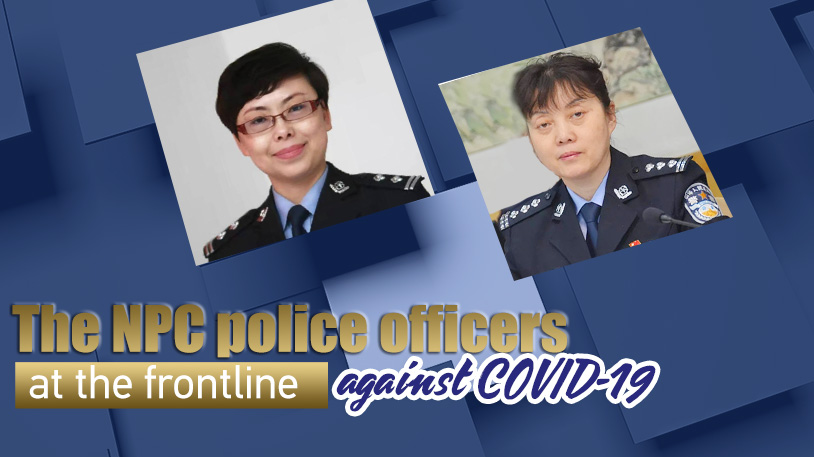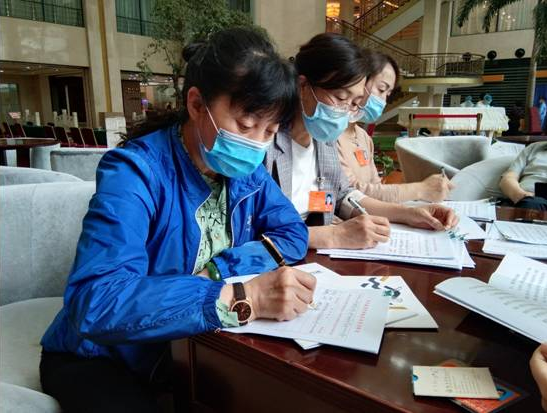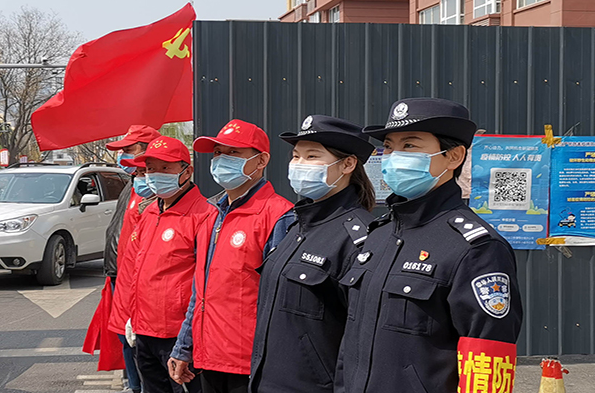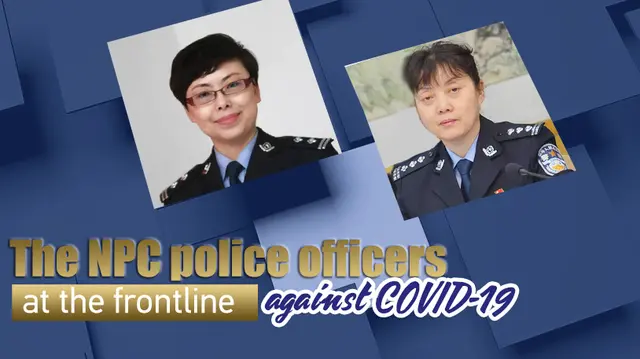
Hao Shilin, a deputy to China's top legislature, the National People's Congress (NPC), is also among the thousands of police officers who were on the front lines in the fight against the coronavirus.
As disease prevention and control became imperative, police officers have bore the brunt of increased duties and responsibility. Though much of the work is essentially routine and requires no special talent, the time and energy they have invested speak much about their virtues as well as the qualities that make them stand out as representatives of the people.
For Hao, who has been a public servant for more than 30 years, not only has her workload increased dramatically but she also feels much more obligated to help those in need.
During the pandemic, Hao normally begins her daily routine at a morning meeting where she makes day-to-day arrangements with staff from property management and neighborhood committees. It is then followed by knocking on the doors of every household in the community. "It often takes two to three hours and we need to make sure the community is thoroughly canvassed," she said.

NPC deputy Hao Shilin(left) attends the Two Sessions amid COVID-19 epidemic, Beijing, China. /National People's Congress
What often coincides with much of Hao's door-to-door visits are the warmth and care she has offered. Hao would send out food to residents who couldn't go out by themselves. "With the outbreak taking place, it is even more inconvenient for them to go outdoors," she said.
Security guards and community workers are also on the list of her concerns. They have come to characterize Hao as an exceptionally caring and diligent officer who constantly asks if they have enough protective gear for themselves and whether there is anything that needs attention.
Apart from visiting households, Hao also has to inspect restaurants and shops to make sure they are operating in line with regulations.
But all the canvassing and inspection work is merely the tip of the iceberg in Hao's daily routine. She also has to comb through all the information she has collected and keep the database updated on a daily basis. "To fight against the pandemic, it is critical to start by securing communities and this makes data accuracy especially important," Hao said.
Coupled with the evening patrols and the work plannings for the next day, Hao often doesn't finish her day until 10 p.m. "This is the battlefield where I take the fight against the deadly disease," she said.
Much like Hao, Yang Rong is also seen as a trusted bastion to be relied on especially in the times of crisis.
An NPC deputywho also serves as a police officer, Yang has deeply entrenched herself as a close confidant to many in her precinct.
A month after the former epicenter Wuhan was placed in lockdown, she received a phone call from one resident. "Me and my family have recently traveled to Hubei Province (where Wuhan is located)," the resident told Yang.
It turns out when all residents were required to submit their travel history, the caller concealedthe truth from the community because he didn't want to cause panic.
"I don't feel good by keeping this from you," the resident said in the phone call.
That this resident chose Yang as audience to come forward with the truth testifies to the unswerving trust Yang has won in the community.
In nearly 30 years of serving the community, Yang has prioritized the interests of the people. "People's trust in me is accumulated through years of putting care into practice bits by bits," she said. "Whether as an NPC deputy or as a police officer, we have to prioritize people's concerns and see what serve them best."

NPC deputy Yang Rong(right) stands at the COVID-19 frontline, Taiyuan, China. /National People's Congress
At the early stage of the outbreak, Yang received mask and protective suit donations from large corporations down to small shops in her precinct. They insisted on donating despite her resistance to accepting them, she said. "That people came to support at critical times is the result of us doing common good in usual times," she said.
During the outbreak, Yang actively coordinated with 22 schools to open "micro-classes" designed for teachers, parents and students to learn the risks of fraud. She has also gone out of her way to collect banners, speakers and LED displays in order to promote hygiene awareness and encourage people to enter self-quarantine.
Like Hao, the prevention and control routines have also left Yang with few hours to rest. "This work is very important, as we stand at the forefront of the battle against the outbreak," she said.
 简体中文
简体中文

